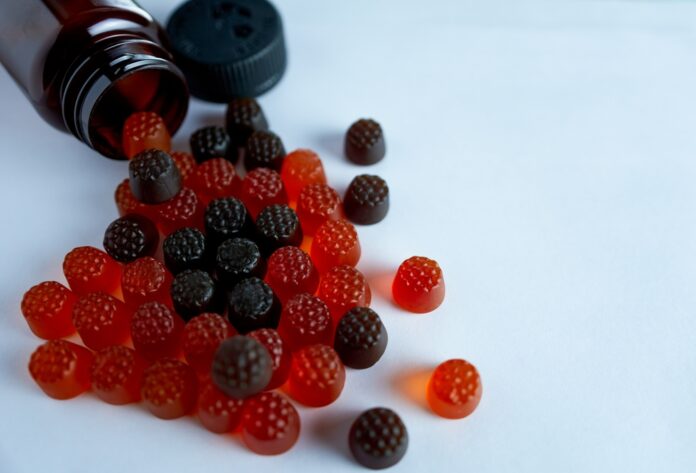If you’re going to take a vitamin every day, it might as well be tasty and fun, right? That’s why a lot of people prefer gummy vitamins over pills. But are gummies as safe and effective as pills?
The answer is … maybe. For the most part, taking a basic multivitamin/mineral supplement is unlikely to harm your health and, for some people, might even do some good, says Stefan Pasiakos, Director of the National Institutes of Health Office of Dietary Supplements (ODS). But there are a few things to keep in mind if you choose to get your supplements from gummies.
Are Gummy Vitamins Effective?
Gummies, says Pasiakos, often have fewer vitamins and minerals than standard tablets or capsules. That’s because some nutrients are less stable in gummies. So, if you choose gummies, you might be getting slightly less of the vitamin or mineral you’re trying to supplement.
Another potential problem with gummies is that they look and taste like candy. That’s why some of us prefer them to pills. But that’s also why they can be risky. This is obviously a danger for children, who might gobble a handful if they happen to find them.
Can You Eat Too Many Vitamin Gummies?
But it’s not just kids. Even adults might be tempted to pop an extra gummy or two from time to time. This is a bad idea. Most vitamins and minerals have upper limits, says Pasiakos, above which they can be dangerous. And remember: You’re also getting these nutrients in your food, so it can be easy to run up your tab. On top of that, some supplements can interact with other medications you may be taking. Vitamin K, for example, can interact with Warfarin, a blood thinner, says Pasiakos.
Read More: Dietary Supplements Are No Substitute For a Healthy Lifestyle
How to Choose the Best Supplements for Health
(Credit:Harry Hu/Shutterstock)
If you decide to go for the gummy, how do you choose the best brand? Pasiakos suggests asking your healthcare team for advice. They can help you decide what supplements, if any, would be best for you and what you should look for when shopping.
He also recommends looking for quality assurance seals from independent third-party organizations such as the NSF, Consumer Lab, or the U.S. Pharmacopeia (USP) Dietary Supplement Verification Program. These organizations verify that the products contain the ingredients and doses listed on the label; they also ensure they don’t contain harmful contaminants.
If you want to do a little comparison shopping before choosing a brand, Pasiakos recommends visiting the ODS’s Supplemental Label Database. There, you’ll be able to find and compare thousands of dietary supplements, including many gummies, that are currently sold in the U.S. You can even see the label images for many products.
Read More: Your Guide to B12 Supplements: Everything You Need to Know About Them
Should I Take Supplements?
But before you dash off to the pharmacy to buy your gummies, you might want to give some thought to whether you need them at all.
Most people who take multivitamin/mineral supplements do so “just to be safe.” It’s hard to be sure you’re getting enough essential nutrients in your diet, so taking a vitamin daily seems like a great way to hedge your bets. And supplements certainly can fill in the gaps where your diet might be lacking.
Who Should Take Supplements?
People who avoid certain foods (such as vegans), people who are pregnant or might become pregnant, breastfed babies and toddlers, and people over 50 might benefit from certain supplements, says Pasiakos.
But popping pills doesn’t take the place of a good diet. The best supplements on the market won’t make up for a diet of junk food and sodas. The ODS stresses the importance of eating a wide variety of nutritious foods. If you’re unsure how to build a healthy diet, check out the Dietary Guidelines for Americans, a publication of the U.S. Department of Agriculture.
If you do decide that vitamins are a good idea for you and choose to go with gummies, don’t let the cute, tasty packaging make you forget that you’re taking a dietary supplement. Take care to get what you need and only what you need.
Read More: What You Need to Know About Vitamin D and Supplements
Source : Discovermagazine






